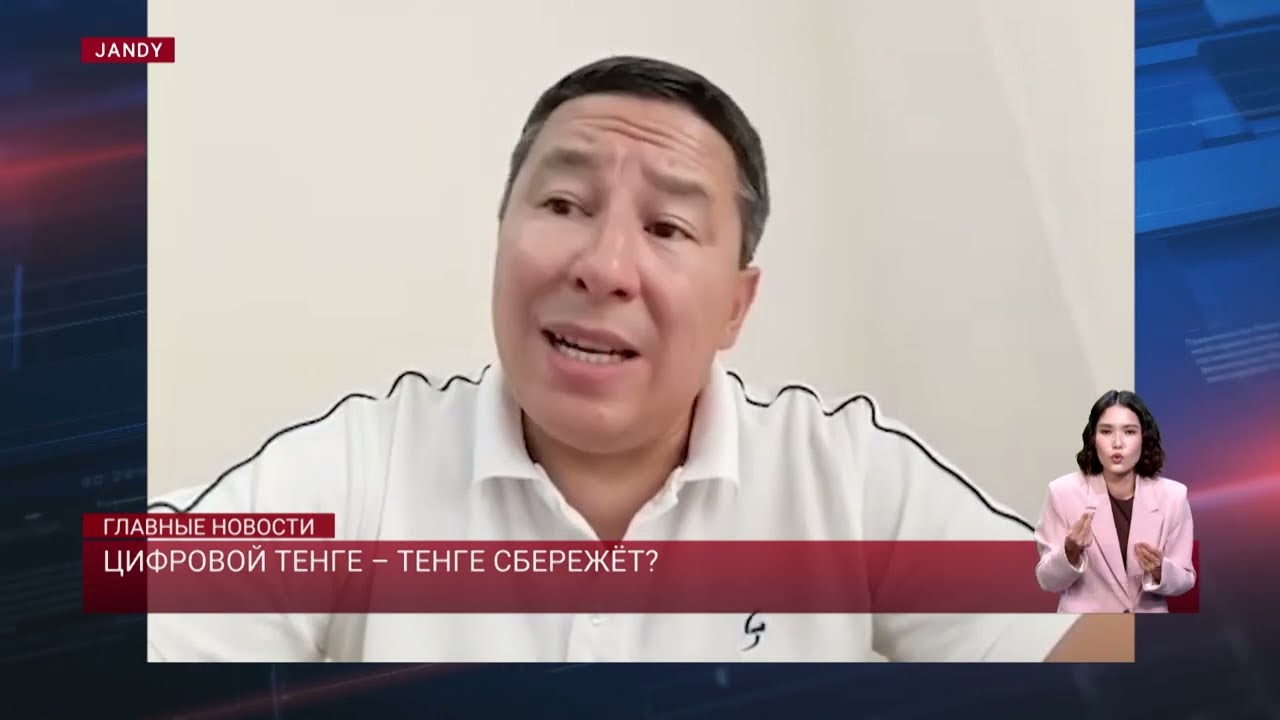At the Talap site, experts decided during the discussion that the crisis of state finances in the country is already on the threshold. They stopped in detail and told what specific problems exist in this area in Kazakhstan and whether they can be solved.
What the experts say
Murat Temirkhanov, Advisor to the Chairman of the Board of Halyk Finance JSC, highlighted several problems of the budget system of Kazakhstan. Among them are the following:
- There is no accountability for the finances of the entire public administration sector, although the republican budget should include absolutely all public finances, with the exception of the budgets of akimats.
- The Parliament does not regulate all the principles and rules of financial management of the entire public administration sector;
- Problems with transparency and reliability of information on public finances;
- The government has extremely low discipline in the execution of budget plans, while our rules do not correspond to the best international practice;
- The poor quality of economic forecasts for the preparation of the country's medium-term budget, and this leads to constant budget adjustments and incorrect planning;
- The medium-term state planning of the socio-economic development of the country is divorced from the medium-term budget limits, because of this, the government constantly climbs into the National Fund.
At the same time, a definition appeared in the draft of the new Budget Code – "public finance". The Speaker positively assessed this innovation, as it implies all income, expenses, assets and liabilities of the entire public administration sector.
As for the regulation of the principles and rules of financial management, Murat Temirkhanov notes that today Kazakhstan has two key legislative documents – the Budget Code and the Concept of Public Finance Management. This creates a conflict of interest and reduces the role of Parliament in the budget system.
"The head of state is part of the executive branch and he regularly initiates the growth of budgetary and extra-budgetary public expenditures for the economic and social development of the country. If the rules for using the National Fund prevent such an increase in government spending, then the rules are simply changed by presidential decrees without discussing the economic feasibility of such changes in parliament," he noted in the report.
If we talk about the rules of accounting and reporting on state finances, then in the case of establishing their independent establishment by executive bodies, distortions and various kinds of manipulations with information arise. There should be clear rules to follow. As an example, he cited that three years ago they approved a limit on the growth of government spending and other things, but these rules were never observed.
Summarizing, Murat Temirkhanov gave a "very negative" assessment to the Budget Code, which has already been adopted in the first reading.
"There are certain improvements at the level of project financing, interregional, but fundamental problems that will cause a crisis 100%, (it is. – Ed.) already now, (they do not decide. – Ed.). We spend a lot, we get into debt and borrow a lot," he said.
Director of the Talap Center for Applied Research Askar Kysykov stands in solidarity with his colleague.
"If we take an integrated approach to the state finance system, what role the state plays in the financial system, then the total amount of income is more than 40 trillion and almost 40% of GDP. The role of the state is very high. The participation of extra-budgetary funds is growing, but at the same time they have been withdrawn from all sub-budgetary procedures: UAPF, OSHI. Currently, 3.3% of the country's GDP is redistributed through these funds, although in fact they are taxes, since these are mandatory payments. Our workload on the payroll is increasing. And most of this workload happens outside the budget. Currently, the burden on the wage fund is 36%, but it will grow to 41%, which is higher in the OECD countries. This is a huge punishment for employers for creating jobs," he said.

Askar Kysykov also stressed that the role of Samruk-Kazyna as a quasi–public sector should play a major role in replenishing the budget, but the organization does not play such a role: only 10-15% of net income goes to the budget, and the rest is for other purposes, mainly social ones.
Another problem is the chronic budget deficit: we spend assets, not save. And, as a result, the national debt increased by 77%.


"If we take the National Fund and take away the national debt, and take a net asset, we are close to zero. Our net asset is 1.6% of GDP, 1.9 trillion tenge. And the question is: should we spend or save? In fact, we no longer have anything to spend, because our debt obligations have already equaled what we have in savings. If we take into account the debt of the quasi-public sector, it is almost 7 trillion tenge, and some of them are denominated in dollars, then our balance is already negative: we owe more than we have assets. As a result, the cost of servicing the national debt has already increased 2.7 times over the past 5 years, and 2 trillion tenge is already planned in this budget for servicing the national debt," the expert explained.

"Over the past three years, budget expenditures have increased by 60%. This is a serious growth. We need to understand what the costs have increased, what we have started spending more on. We have decomposed this increase in expenses, but the main items are education, social security and debt service. When we look at the budget structure, (we come to a conclusion. – Ed.) this is a very important area, but if you look at the structure of this increase, then 80% of it falls on current costs, not on development. We just eat them up, but we don't invest in development in any way," said the director of the Talap Center for Applied Research.
He is convinced that 2/3 of the budget needs to be optimized. Another problem is the low tax collection rate.
"If you look at the execution of the republican budget for this year, there is an underpayment of tax. We are short of almost 20%, and there is a failure to fulfill the revenue plan for all key taxes," he stressed.
Kuanysh Zhaikov, head of the Desht analytical center, disagreed that the budget is mainly spent on current expenses.

"Free education, healthcare, including the one we have, is sitting in the part that is 65%: we give 35% to people directly, but we also create these indirect benefits. I don't know how unproductive they can be, because this is the basic function of the state to do this, that is, it does it that way. I see that the state has had no other choice in recent years. I do not believe that we will reduce spending or freeze its growth, because it is impossible to finance public goods and infrastructure in such a huge area with low taxes, generally with low incomes and expenses," he said.
What do those close to the government say
Advisor to the Prime Minister Alisher Kozhasbayev agreed that goal-setting is necessary. But he added that he was tired of attending such events, where they list the problems that are known about, and they are quite simple. At the same time, the government is open to discussion and finding solutions to pressing issues.
"Let's really discuss and look for a solution together, which the government is also trying to find now. These are all the problems that have been listed, they are known. In that case, our strategic goal setting is how we will get out of the situation. – Auth.) – the first one. Secondly, what exactly should be done with the budget code? Sequestration? (proportional reduction of funds provided by the budget in order to overcome its deficit. – Auth.) I recently sat in the same expert community and said: "Let's sequester." Then I looked at this budget, and what should be sequestered? Especially when you travel around the regions, look at these people, try to tell them that sequestration is necessary. Try it, you won't leave this region," he said.
At the same time, he agreed that it is necessary to work on income, the quality of work and human capital.
"The quality of work, the quality of human capital and the cost per unit of efficiency, I consider the main problem today to be the growth of economic, social, and welfare in general," Alisher Kozhasbayev said.
He also shared his personal point of view that it is necessary to cancel the annual GDP target.
"He creates a whole bunch of problems. Our real incomes are falling, and GDP is growing. Why is such a GDP growth worth it? What for? Where is the quality of this growth? Where are the structural changes in the economy? Ultimately, any economy is for a person where there is an increase in well-being. But due to the fact that we are set such targets, we have to achieve them. They have to be achieved, respectively, from here we then have to start telling that yes, your policy does not merge with the National Bank, but it turns out that inflation is rising, as if we ourselves do not know, honestly, the population level is falling," the expert explained.
He proposed to create a composite index that would include GDP, inflation, and income growth, and also called for discussion of this idea.
Alisher Kozhasbayev added that he also stands for public control, but competent.
Author: Кристина Колосовская
Source: https://ulysmedia.kz/analitika/30018-novyi-biudzhetnyi-kodeks-chto-s-nim-ne-tak-i-kakie-problemy-v-sfere-gosfinansov-est-v-kazakhstane/



